Details
Description
SKU: AN.AMP-0607
Composed by Georg Frideric Handel. Edited by Z. Randall Stroope. Octavo. Alliance Music Publications #AMP 0607. Published by Alliance Music Publications (AN.AMP-0607).Handel/Stroope.
UNISON SINGING
The simple things of life, after closer examination, are those things from which we often learn the most. This paradox is especially rrue in music, for the word simple is often unfortunately assigned to music with the fewest number of parts. Mature singers and conductors know all too well that fine unison singing is difficult and teaches musical discipline is so many areas. It is with that frame of mind that the idea of combining these two wonderful Handelian pieces came into being.
ABOUT OMBRA MAl FU
Ombra mai fu is from Serse (or Xerses), an opera in three acts premiered in London in 1738. The opera takes place in Persia and serious, even tragic scenes alternate with those of farce and comedy. When the opera begins, Serse, the King of Persia, and his brother are both in love with the same girl, Romilda. Unfortunately for Serse, she loves his brother, Arsamene. But, being a tyrannical man and not above using his power to remove all human obstacles, Serse banishes Arsamene from the kingdom (and from competition with Romilda). [This is beginning to sound like opera.] Finally, after much trial and tribulation (and the near death of Romilda), Serse asks forgiveness for his outrageous behavior, and the opera ends.
Ombra mai fu is one of opera's most famous arias. Once known as Handel's celebrated Largo (because of the beautiful tune), the aria is sung by Serse, who whimsically talks of his love for the beautiful tree in his palace garden. Sung immediately following the overture, this aria has no real textual relevance to the overall plot. The greatness of the work lies in its utter simplicity, beautiful melodic line, and stunningly expressive sonority.
Editorial note: The original key for Ombra mai fu is F major, and that has been preserved here. (Many other editions have been transposed down a step.) The string accompaniments in both arias in this edition are represented in the keyboard reduction, with minimum interruption or adjustment to the original. There has been no attempt to make the reduction sound more pianistic or to fill in chords to make a fuller sonority.
ABOUT LASClA CH'IO PlANGA
Lascia ch'io pianga is from the Italian opera Rinaldo (l711). This was Handel's first production in England, and it made him an overnight star. Rinaldo is a feast for the senses and a theatrical treasure of the Baroque. The opera tells of the legendary Christian warrior Rinaldo and his adventures as he attempts to liberate Jerusalem from the Saracens and to win, against all odds, the fair Almirena's hand in marriage. The opera was a spectacle of visual entertainment, including an enchanted palace, a fiery chariot, black clouds, fatal wand weapons, ugly spirits, and loads of sorcery.
Lascia ch'io pianga is set in a palace garden in Jerusalem during the Crusades. It is sung by Almirena, daughter of Goffredo, who has been abducted by the sorceress Armida and imprisoned in the palace. She is lamenting her fate.
performance by Nebraska Children's Chorus Bel Canto
Omaha, Nebraska
Z. Randall Stroope, conductor
Ombra mai fu is from Serse (or Xerses), an opera in three acts premiered in London in 1738. The opera takes place in Persia and serious, even tragic scenes alternate with those of farce and comedy. When the opera begins, Serse, the King of Persia, and his brother are both in love with the same girl, Romilda. Unfortunately for Serse, she loves his brother, Arsamene. But, being a tyrannical man and not above using his power to remove all human obstacles, Serse banishes Arsamene from the kingdom (and from competition with Romilda). [This is beginning to sound like opera.] Finally, after much trial and tribulation (and the near death of Romilda), Serse asks forgiveness for his outrageous behavior, and the opera ends.
Ombra mai fu is one of opera's most famous arias. Once known as Handel's celebrated Largo (because of the beautiful tune), the aria is sung by Serse, who whimsically talks of his love for the beautiful tree in his palace garden. Sung immediately following the overture, this aria has no real textual relevance to the overall plot. The greatness of the work lies in its utter simplicity, beautiful melodic line, and stunningly expressive sonority.
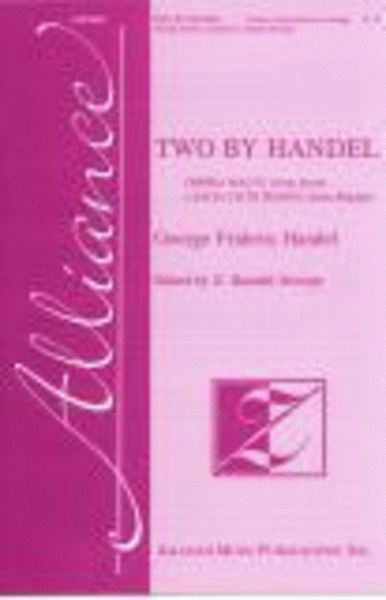
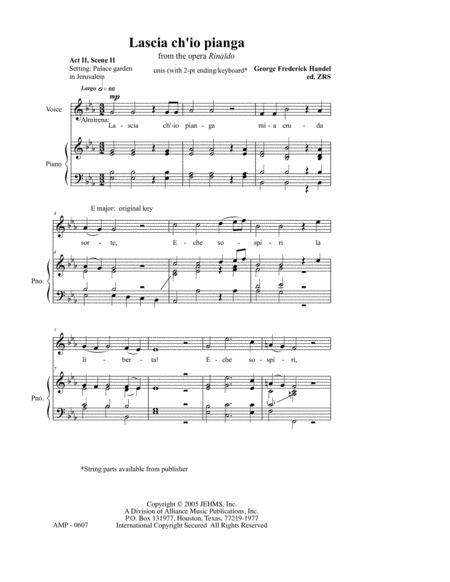
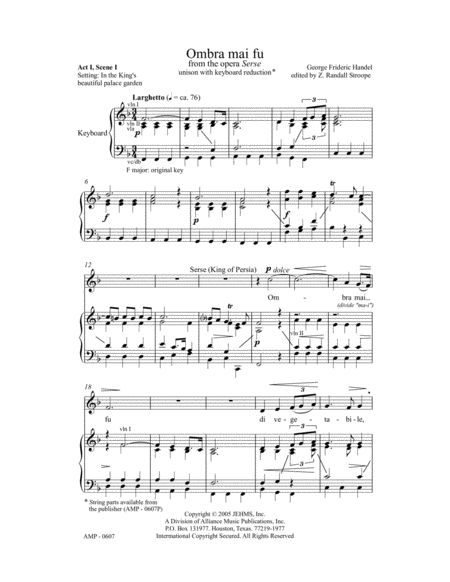
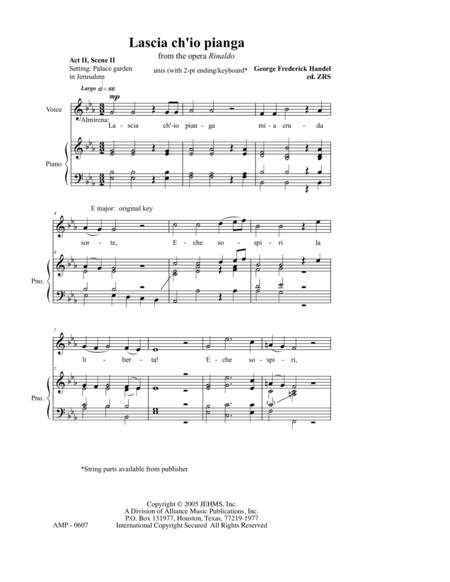
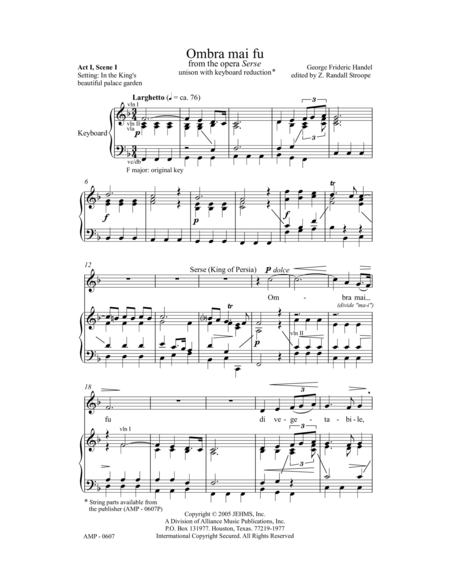
 Share
Share